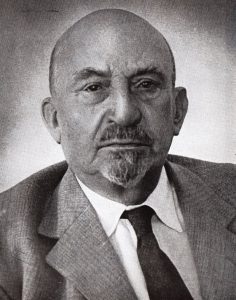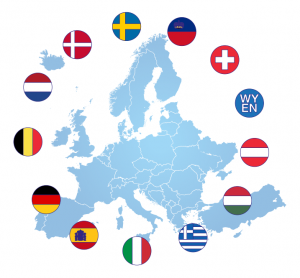About the Weizmann Institute of Science
The Weizmann Institute of Science is one of the world's leading research institutions. With over 250 research groups across five faculties - Biology, Biochemistry, Chemistry, Mathematics and Computer Science, and Physics, the institute is making ground-breaking discoveries. These findings not only contribute to the fundamental understanding of mankind and the universe, but also lead to advances in medicine, technology and environmental protection. The institute is known for pioneering developments such as the development of a new technique, called 3TP (Three Time Point) for detecting cancer and ground-breaking drugs for multiple sclerosis.
The history of the Weizmann Institute of Science is closely linked to the history of its supporters and benefactors from different parts of the world. Originally established through the generous support of the British Sieff family, the Institute has proudly forged an extensive international network of friends and supporters, all united by a common vision of advancing science for the benefit of humanity.
Founding history
The Weizmann Institute of Science was founded by Professor Chaim Weizmann (1874 – 1952) in 1934 as the Daniel Sieff Research Institute, named in memory of the son of U.K. donors Rebecca and Israel Sieff. The Institute was renamed in honor of Dr. Weizmann in 1949. Dr. Weizmann was a renowned chemist, who saw his vision of the establishment of a Jewish state in the Land of Israel and of higher education in Israel all come to fruition during his lifetime. In partnership with others, he established the Hebrew University of Jerusalem in 1925 and the Weizmann Institute of Science.
While working as a lecturer at the University of Manchester, Dr. Weizmann developed the process for producing acetone through bacterial fermentation, which was of great importance to the British during World War I. He worked with Lord Arthur James Balfour to write the Balfour Declaration in support of the establishment of the State of Israel and met with U.S. President Harry Truman to convince him to support the State’s establishment. Dr. Weizmann became the first President of the State of Israel. His residence on the Weizmann Institute campus is now a museum and a national landmark.

Dr. Chaim Weizmann
European Committee of the Weizmann Institute of Science (ECWIS)
The ECWIS was founded in 1960 as a non-profit organisation in Zurich, Switzerland. The aim was to raise funds and strengthen international scientific co-operation to promote the Weizmann Institute in Rehovot. Today, ECWIS operates from Zurich and Rehovot and has European partner organisations in various countries. These include in particular the "Austrian Society of Friends of the Weizmann Institute of Science". There are further partner organisations in Belgium, Denmark, Germany, Greece, Hungary, Italy, Liechtenstein, the Netherlands, Spain, Sweden and Switzerland. In addition to these societies, WYEN also stands out as a significant supporter of the Institute. The Weizmann Young European Network (WYEN) is a select group of science and business leaders from across Europe who are passionate about using their knowledge, experience and success to create long-term social impact. The Societies of Friends support the Institute's research, which is characterised by numerous groundbreaking discoveries, such as the structural elucidation of the ribosome by Prof. Ada Yonath, a Nobel Prize winner.

Research and discoveries
The Weizmann Institute of Science has done pioneering work in cancer research that has led to groundbreaking discoveries. The Weizmann Institute of Science was the first institute in the world to clone the p53 gene, which is involved in 50% of all cancers. The institute also plays a key role in the field of neuroscience and the development of basic research instruments such as nuclear magnetic resonance.
The researchers at the Weizmann Institute of Science are strongly committed to science education and offer programmes for young people to awaken their enthusiasm for science. This is reflected in particular in the Dr. Bessie F. Lawrence International Summer Science Institute (ISSI).
Weizmann Institute of Science today
The campus of the Weizmann Institute of Science in Rehovot covers an area of 1.2 square kilometres and is home to a diverse community of 2,500 employees. The institute has a large budget, which it invests in research into alternative energy sources and emerging fields of science. In addition to its ground-breaking research, the institute is actively involved in educational initiatives.
